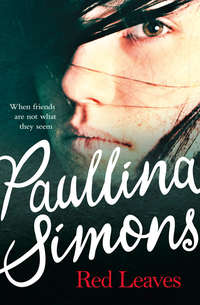
Полная версия
Inexpressible Island
At last Julian understood.
He wasn’t prepared for it. It was like another thing had been severed.

In the middle of March, in the middle of the night, Julian banged on Quatrang’s door.
“This has to stop,” Devi said, half-asleep in a black silk robe, letting Julian push past him and inside. “I have a life. I have to function during the day. I’m not a nocturnal like you.”
“What do I do, Devi? I don’t know what to do. Help me.”
“Would you like me to give you something to help you sleep?”
“Are you saying you don’t know how to help me save her, how to help me change her fate?”
Devi spoke low. “Yes, that’s what I’m saying. I don’t know how to help you change her fate.”
“But seven is not enough!”
“Seven is not enough,” Devi repeated dully. “Look what you’re doing, you’re making me repeat things, infecting me with your disease. Once more is not enough for you. Six journeys through time is not enough for you. Seven weeks is not enough for you. And if you had seventy times seven, what would you say? Would that also not be enough? And if you had seventy thousand times seven?”
“It would also not be enough,” Julian whispered.
“Seven weeks to change your life and hers,” Devi said. “Seven days to make the world. Seven words on the Cross. Seven times to perfect your soul so when you finally meet God, you’re the best you can be. Don’t be selfish, Julian. Think of her. You’d rather her immortal soul spin and toil for eternity? Over and over, trying and failing?” Devi shook his head. “Now that sounds like nothing but suffering for the sake of nothing but suffering. Look at yourself—your bones are crumbling. You are turning to dust before my eyes. Your body can’t take even one more time. But long gone are the days when you swore to me you were never going back, and I pretended to believe you. You’ve really gone out of your way to answer a question I of all people didn’t need answered: how does a man live when he must live without the thing he can’t live without? Poorly, that’s how. So go—for the last time go—and do what you can.”
“Like what?”
“To have something you’ve never had,” Devi said, “you must do something you’ve never done.”
This is it, ladies and gents!
Make it real.
Make it last.
Make it beautiful.
4
The Importance of Being Julian
THE RIVER ENDS. HIS MAKESHIFT DINGHY GRINDS AGAINST A muddy decaying bed. Julian turns off the headlamp to find the light, but there is nothing to see and nowhere to climb. Dusting himself off, he turns his headlamp back on and proceeds down the dried-out riverbed. It’s better than walking on ice, that’s for sure.
After a long time, the tubular walls of the cave get smoother, grayer, and the rocks under his feet disappear. He bumps his ankle against something that feels like iron. He leans down. It is iron. It’s a single rail. If it was a live rail, he’d be in real trouble. He wonders why it isn’t live. He walks and walks and walks. To look for the light, he once again switches off the headlamp. Finally, in the dark tunnel ahead of him he sees a faint yellow glimmer and hears some distant noise.
The tunnel empties into a train station. He pulls himself up onto a platform in a cavernous space, all of it in near total darkness except toward the opposite end around a blind curve. Julian recognizes the station. He’s been here many times, a thousand times. In case there’s any doubt, on the wall, a red circle with a blue line through it tells him what it is.
It’s Bank.
It’s the Bank tube station in the City of London. He is on the Central Line platform, with its unmistakable sharp bend (the station was built around the vaults of the Bank of England). Julian can almost hear the shriek of the screeching wheels as the train turns the corner. Another day, that is, not today, because today there are no trains because the rail is cut.
Just past the curve, he sees a cluster of ragamuffin people spread out on the platform near the exit to the lobby that leads to the escalators that lead to the street. They’re jammed together and sunk to the ground amid a few lit lamps. From the lobby, he can hear a single voice talking, modulating up and down the octaves, as if giving a soliloquy. Intermittently, the voices on the ground laugh.
It looks as if the crowd might be using the Underground as a bomb shelter. Which would explain why there is no live rail. The rail is cut at night, because people sleep in the Underground.
Julian pats himself on his proverbial back. Finally, he has guessed his destination correctly.
It’s London, during the Second World War.
To fit in with the times, Julian bought a three-piece Armani suit, two sizes too big. No one wears fitted suits in the 1940s. On his feet are waterproof combat boots. On his head is a newsboy cap, the kind even King George liked to wear. Julian kept his hair curly and longish, slicked back, away from his forehead, and he shaved, though after time in the cave, his stubble feels an inch thick as he runs his hand over his face.
He steps into the lobby between the platforms and languishes at the rear of the crowd, trying to catch the voice echoing off the tiled tubular walls.
On the platform, some are already lying down, covered by blankets as if this is where they will sleep, but in the poorly lit lobby, people are sitting cross-legged on the floor next to their bags and sacks and coats and pillows. They’re listening to the voice in front of them. Lit by a kerosene lamp, near the stopped escalator, a singular girl stands on a makeshift stage—a wide door ripped off its hinges and laid flat over some two-by-fours. She stands on top of the door, her long strands of dark hair spilling out of a blue headscarf. She looks tall, larger than life, because she’s up on a stage. She wears rags like the rest, a skirt with a frayed hem, a falling apart sweater, and torn boots. But the beige wool fits snugly over her breasts, her neck is white, her skin translucent, and her huge eyes blaze as she gestures with her hands to amplify her words. There’s a diamond smile on her face.
Already Julian is warmer. Shae never smiled. Not in the beginning, and certainly not at the end.
The young woman is reciting a humorous ditty about romantic love. It takes Julian a few moments to recognize it as a pretty solid paraphrase of Oscar Wilde’s A Woman of No Importance. Her captive audience is moderately amused.
“Oh, the Ideal Man!” the woman yells cheerfully. “Let me tell you about him! The Ideal Man should talk to us as if we were goddesses. He should refuse all our serious requests and gratify every one of our whims. He should encourage us to have caprices, yet discourage us to have goals. He should always say much more than he means and always mean much more than he says. He should never run down other pretty women. That would show he has no taste. If we ask him a question about anything, he should give us an answer only about ourselves. That, ladies and gentlemen, is the Ideal Man!”
From behind the crowd collected at the girl’s feet, Julian raises his voice, steps forward, and speaks.
“Cecily?” he calls to her, switching to his own paraphrase of The Importance of Being Earnest. “Is that you? The dog cart has been waiting, my dear. Are you ready to leave with me at last?”
With barely a pause the girl squints into the darkness, her hand at her forehead like a visor. “Algernon, is that you? Finally, you’re here. Come quick! Are you planning to stay until next week? I hope so, though my mother will be very cross to discover this is so. She doesn’t like the way you abruptly left me not long ago.”
Julian takes a few steps through the curious crowd. “I left you? You mean, you left me. And I don’t care about your mother, Cecily. I don’t care about anybody in the whole world but you. I love you. You will marry me as you promised, won’t you?”
The girl laughs like a church bell. “Algernon, you silly sausage. Now you want to marry me? Don’t you remember we were already engaged to be married, and then I broke it off with you?”
Two more strides forward. “But why would you do a thing like that, Cecily?”
“Well, it can hardly be called a serious engagement if it’s not broken off at least once. But I forgive you, Algernon.”
He crosses the concrete floor on which people sit and laugh and clap and jumps up onto the wobbling makeshift stage.
For a moment he stands, and she stands, in silence. For a moment it seems as if they both have forgotten their lines. Pulling off his cap, Julian presses it to his chest.
We, the drowned, are rising up for air.
He falls to his knees in front of her, to hide his exhaustion, to show her other things. “What a perfect thing you are, Cecily,” he says, staring up into her baffled face.
The girl looks him over, his suit, his decidedly out-of-time hair, the newsboy at his breast, the dark beard flecked with gray. “Oh, my, Algernon, I see you’ve neglected to shave.”
“Who can shave at a time like this?” Julian says, and the crowd murmurs, hear, hear. “No one is shaving. That’s how you know how shaken the men of London really are.”
Hear, hear, the crowd responds emotionally.
The young woman stares into his bottomless haunted eyes. A breath of animation passes across her face. Coyly she smiles. “You may be unshaven, but aren’t you a little overdressed for the occasion?”
“Why, yes, you’re right, I am a little overdressed,” Julian says. “But I make up for it by being immensely undereducated.”
The people laugh. Julian continues. “Josephine, do you know that this is the last time we will see each other? After this, I must leave you. I will not be staying for the rest of your performance. The dog cart is waiting, my dear. It is so painful parting.”
Confused, the girl mouths Josephine? “I agree, Algernon,” she says. “It is painful to part from people one has known for only a short while. The absence of old friends one can almost tolerate. But even a momentary separation from someone whom one has just met is unendurable.”
He is still on his knees, gazing up at her. She flushes, blushes. He doesn’t. He barely even moves. His eyes roam her face, her body. She is fair of skin and dark of hair. She is doe-eyed, pale-pink-lipped, long-necked, bosomy, beautiful. She is like she always is. Grimy in the Blitz, living underground, washed out in drab dress, her inner self is still a shining city on a hill.
Julian wanted a fairytale ending. Instead he is down on his knees. He stares at her open and unashamed as if he already knows her. He stares at her with eyes that have seen her. “Before I go, dear Cecily,” Julian says, his voice cracking, his gray eyes full, “I hope I don’t offend you when I state openly in front of all these good people that to me in every way you seem to be absolute perfection.”
The audience cheers.
She swallows, stammers. “I think, uh, your frankness does you credit, Algernon.”
“Ever since I first laid my eyes upon your wonderful, incomparable face,” Julian says, “all those years ago, Cecily, in another life, I have dared to love you—wildly, passionately, devotedly, hopelessly.”
The people on the platform are raucous with delight. He can barely be heard above their whistling and applause. His Cecily is frozen.
“Uh—I don’t think you should tell me you love me hopelessly, Algernon.” Her voice is croaky. “Hopelessly doesn’t make much sense, does it?”
“It’s the ideal word.” Dropping his cap to the ground, he rises to his feet.
“My dear romantic boy—”
Julian steps forward. Before she can finish, he takes her into his arms and kisses her, in a prolonged open kiss. He kisses with lips that have kissed her. There is nothing tentative about their embrace.
The crowd goes wild. Her arms rise astonished to his elbows. Her soft warm lips kiss him back.
“Oh my,” she says.
Louder! Louder! the crowd cries.
“There is no other girl for me,” Julian says. “There never was.”
And in reply she says, “Ernest, my love, I know.”
Louder! demands the crowd.
“My dear,” she says, breathless but louder, “please tell me your name is Ernest. It’s always been my dream to marry someone named Ernest. There’s something in that name that inspires absolute confidence.”
“Cecily, are you saying you could not love me if I had some other name?” Tenderly he holds her wrapped head, touching the strands of her hair, pressing her body to him.
“What—what other name?”
“Julian,” he replies.
“You mean Algernon?”
“Do you mean you couldn’t love me if my name was Julian?”
She is still in his arms, but weak in the legs. Her lips are parted. Her breath is shallow.
“I might respect you,” she says, “I might admire you, but I’m afraid that yes, I could not give you my undivided attention …”
“We’ll just see about that, won’t we?” Cupping her face, he tilts his head to her. They kiss again. They kiss full on, and they don’t stop.
Tottering, she finally finds the strength to push him away. It’s impossible to talk above the roar of the crowd. Julian and the girl have given the embattled citizens something better than a play, something better than comedy. They have given them life masquerading as art, life real and poignant, an eerie revelry blooming in the dungeons below the blacked-out city.
“Hey, you, why don’t you get off there,” a tall, unhappy-looking guy calls out, elbowing his way forward. “I mean—get off that door. Two people are not supposed to be on it. It’s not safe. Are you all right, my dove?”
Julian’s arm is still around the dove’s waist. Dove pulls away, brushes Julian off her sweater.
“I’m fine, Finch,” she says. “Finch, this is …”
Julian stands. She knows his name. He’s not going to help her with it.
“Julian?” she says uncertainly.
“Yes. Julian.”
Julian and Finch do not shake hands. Julian brings his right hand behind his back to hide his missing fingers. Before he can ask dove what her actual name is, or what her connection is to the gangly humorless fellow, Finch asks where Julian has come from. He simply might mean tonight, but Julian replies with “Wales!” as confidently as he would say Simi Valley.
“Oh, my goodness,” the girl exclaims. “Finch, another Welshman! I’m gobsmacked. Finch is from a small city called Bangor. Where are you from, Julian?”
But of course Finch would be from damned Bangor. The only place Julian knows besides Bangor and Cardiff, which is too big and easily disproven, is Rhossili, where Edgar Evans hailed from. So that’s what he tells them. Rhossili.
Wouldn’t you know it, Finch’s entire family hailed from Rhossili! For some reason this pleases the girl tremendously, though it doesn’t please either Finch or Julian remotely.
“I haven’t been back for years,” Julian says.
“I should think not,” Finch says, “because you don’t sound at all like a Welshman.” Though Finch is probably thirty, he looks as if he shaves sporadically at best. His short hair is carefully parted to the side, and his triangular brown eyes are intense and hostile.
“Yes, lost my accent—”
“You sound almost American, frankly.”
“Don’t know what that’s about. Have the Americans come to London …?”
“Maria and I are getting married,” Finch blurts, “at Christmas.”
Look how much information Julian has gathered from just one short sentence. All sentences should be so brief and informative. Her name is Maria. She is getting married. To the annoyed string bean named Finch. At Christmas.
“Well, Finch,” Maria says, “let’s not count our chickens just yet. It’s almost two months away. There’s a war to get through between now and then. Plus, I’m still waiting for that ring you promised.”
“I told you I’ll get it, dove. Now come,” Finch says, extending his hand. “Don’t stand on that thing with him. Look, it’s teetering. You will fall. Remember last week? You almost fell.”
She takes his hand and jumps down, turning back to Julian. “Do you want to come meet our friends?”
“Would love to.”
Finch yanks her hand with irritation.
“What, Finch?” she says. “We can’t be impolite.”
“Why not? We don’t know him!”
An older woman stops Julian, grabbing him by the elbows. “Young man, you were terrific,” she says, squeezing him approvingly. “You gave us all quite a stir—why, me and my friends was saying we haven’t felt so aquiver since the Great War when we was young women ourselves. Where did you learn to act like that?”
“Who says I was acting?” Julian says. Both Finch and Maria spin around to stare at him in the tunneled darkness.
“I don’t like that man,” Julian hears Finch say to her as they walk down the platform. “I don’t like him at all. I have a good mind to deck him.”
“Finch, calm down. It’s in good fun. He’s just playing with you. Do you want him to continue trying to get under your skin? Keep this up.”
“Kissing you like that was playing with me? Who does he think he is?”
“That was acting, Finch.”
“You heard him, he said it wasn’t. And I didn’t know that Oscar Wilde called for that sort of passionate … acting.”
“What you don’t know is a lot, Finch.”
“I have a good mind to deck him. Why are you laughing, dove?”
“I wasn’t laughing. I was nodding.”
“I could do it. You don’t think I could do it? I could. I played a fighter in Jack Dempsey’s Life last year, remember? I know the moves. And what’s he going to do? He’s crippled like Wild.”
“Yes, Wild will love him.”
5
Wild
ADJACENT TO THE MAIN PASSAGEWAY BETWEEN TWO SUBWAY platforms is a small secondary walkway, rarely used. There, Julian comes face to face with a group of vagabonds who have made themselves an abode in the Underground. A dozen people, women and men, young and old, in suits and dregs, sit on stools and benches or lie across the half dozen bunks that line the walls. A bony twentysomething woman sits in an armchair at a wooden table, doing a jigsaw puzzle. Four or five kerosene lamps hang off the bunks; there’s a bookshelf, a clothes line, a coat stand; boots on the floor, purses and bags; a large oval mirror propped up against a wall; scarves and hats draping the posts of the beds; and weary faces staring curiously at Julian.
“Who the bloody hell are you, mate?” says a grinning blond man, stepping up to Julian. “You nearly gave our Finch a heart attack with your kissing. Well done!” The man is in his early thirties, floppy haired, good looking, but missing most of his right arm. The sweater hangs loose above his elbow. He gives Julian his left hand to shake. Gratefully Julian stretches out his own left hand.
“I’m Wild,” the smiling man says. Julian is not sure if he is hearing a name or an adjective. The man doesn’t elaborate. He is fit and strong, able-bodied in every way except for the missing arm. “How do you know Folgate?”
“Is that her last name?”
“Wild, leave him alone,” Maria says. “Stop interrogating him. Let him meet the rest of the gang before the siren goes.”
“Is the siren going?” Julian asks. He wishes for no sirens. He wishes for it to be 1942 or 1943, after the terrible beginning and before the terrible end, somewhere in the drudging middle. Please, no sirens.
“Fine, Folgate,” Wild says, “but I’m going to introduce him, not you. You are atrociously long-winded, as if there isn’t a war on. Listen up, everybody!” he yells. “We have a new member …”
Finch protests. “No, we don’t!”
“Julian, gang. Gang, Julian.” Self-satisfied, Wild turns to Maria. “That’s how it’s done.”
Rolling her eyes, she pushes him in the chest. “Go away,” she says. She is familiar with him, unafraid of him, and not in love with him despite his brazen good looks. “Julian, come here and meet Duncan.” Duncan is a big guy, at least 6′5″, with a gruff voice and a lamb-like demeanor. He’s deaf in one ear and can’t serve, Maria says, but like many of their friends, he’s a volunteer in the Home Guard, the London Defence League charged with doing whatever is required to help the city get through the nighttime attacks. During the day, Duncan works the docks at Wapping.
“London Defence League?” Julian asks Maria. “You’re not part of that, too, are you?” He thought only men could join the LDL. Before she can reply, Duncan and Wild pull him away.
“Folgate, the war will be over before you’re done introducing this man. Stop being in love with the sound of your own voice.”
“Leave him alone, Wild,” Maria says. “Let me—”
“This isn’t the stage,” Wild continues. “Julian doesn’t give a toss about Duncan’s deaf ear. I just showed you how to do it. Again, watch and learn. Julian—Nick Moore. Nick—Julian. Nick, say something.”
“Fuck off,” says Nick, a spindly albino chap, spread out on a lower bunk, smoking and not getting up.
“That’s all you need to know about Nick,” Wild says. “He knows only two words. Right, Nick?”
“Fuck off.”
Nick works at the Ford truck and munitions factory in Dagenham, Maria tells Julian, which at the moment is closed on account of being nearly burned to the ground. So at present Nick is working the Wapping docks with Duncan.
“Julian, do you want to come with us when we go out?” Wild asks.
“Absolutely not!” says Finch, idling close by.
“Sure,” Julian says. “Where are you going?”
“Finch, after losing Lester, you well know we could use an extra pair of hands.” Wild waves his stump around. “We’re a Rescue Squad, Julian. We call ourselves the Ten Bells Watch. Ever hear of the Ten Bells?”
“The pub over in Bethnal Green?” Julian knows that pub. It’s not too far from Devi.
“Yes! Good man. When the umpteenth bomb fell into the transept of St. Paul’s, and all the stained glass was blasted out, the church got itself a group of volunteers called the St. Paul’s Watch whose only job was to douse incendiaries. Well, we’re a group of volunteers who douse the incendiaries that fall near Ten Bells.”
Julian laughs. “Pub saving is so often overlooked during war.”
“My sentiments exactly!” Wild studies Julian with an approving grin.
“Is that where you’re all from, Bethnal Green?” Julian doesn’t want them to be from there. Bethnal Green gets incinerated during the Blitz. “Does anyone have a newspaper?” What year is it? What month is it?
Reaching into one of the bunks, Wild pulls out the Evening Standard and tosses it to Julian, saying to Maria—
But Julian has stopped listening. The paper hangs from his hands.
It’s November 8, 1940.
His shoulders turn inward. He couldn’t have come at a worse time, a worse month, a worse year. He can’t even look up. The math in his head is brutal. He almost wishes he were back in Invercargill where he did no math at all.
“Are you okay, Julian?” Maria says solicitously.
The 49th day is Boxing Day, the day after Christmas.
She peers into his face.
This can’t be the way it ends. It just can’t be.
Getting himself together, he takes a deep breath, lifts his head, and smiles.
“I’m fine,” he says.
“You want to meet some more people?”
“Sure.”
There are a surprising number of men in their motley crew considering all men under 42 must be conscripted. Uh-oh, a wilted Julian thinks, he’s only 39, could he, too, be conscripted, before he remembers his missing fingers, his wonky eye, oh and that he has no ID and is not a British citizen. Never mind. Anxiety and logic make strange bedfellows.








